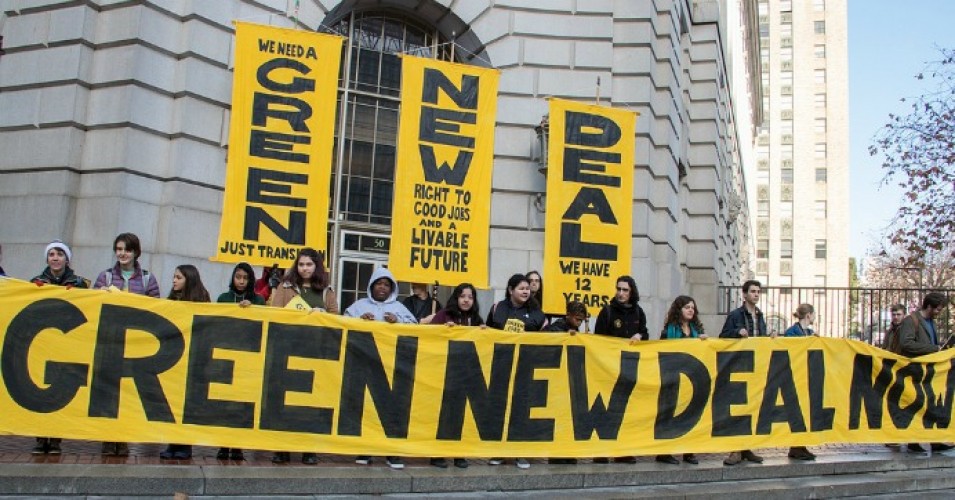Many see a carbon tax as a solution to the climate crisis. This may not be the case as it will drag on the economy, which is flagging anyway. As we have seen in so many articles concerning the Green New Deal, it will be terminating austerity and investing in environmentally meaningful training, services, and infrastructure.
Richard Murphy is Professor of Practice in International Political Economy, City University of London. He campaigns on issues of tax avoidance and tax evasion, as well as blogging at Tax Research UK
Cross-posted from Tax Research UK

A worrying idea was put to me yesterday. This is that for many people the Green New Deal might simply be a new form of austerity.
One reason given was that many people think it would result in the introduction of carbon taxes, and these are regressive. That might be austerity by any other name. This is one reason why I am really not very keen on such taxes.
Another issue raised was based on the problems faced in France. You cannot begin to tax people’s mobility without giving them viable alternatives. No wonder when France tried to do this people took to the streets. I think the lesson has been noted: investment in new infrastructure has to proceed any restriction on use of the old.
There was also concern that the Green New Deal would take the fun out of life. Might it remove all holiday flights? No, not necessarily. But if you want to take them many times a year that could be another matter. In other words, the need for equity in any transition has been noted.
And will everyone have to be a vegan? Not that I am aware of. But food tastes may change – just as they have massively over my lifetime (thankfully).
I am not pretending that the world will be the same after a Green New Deal as it is now. That is not possible. Saying which, I mean it is simply not possible to replace current energy sources with renewable ones and diesel and petrol cars with electric ones and think that is somehow a Green New Deal. It won’t be. That’s just greenwash that will save us from nothing. In other words, to suggest that the Green New Deal will not create a little discomfort along the way is, I am afraid, not true. Those really stuck in their ways may not like all of it.
But let’s look at the upside too.
The Green New Deal aims to deliver jobs on a true living wage in every constituency of the UK.
And it will supply the training to let the Green transition we require happen. Which will mean more spending on local communities. And the creation of long term job opportunities for young people.
And there will be a lot of work for local small businesses.
All of which will spill over into revitalised local communities.
I would want to go further. I know I have problems with savings which withdraw money from the economy without offering resulting economic activity in exchange. But suppose the Green New Deal was funded by Green ISAs, backed by a Green Investment Bank and paying 3% a year – which is almost impossible to get anywhere, but which has almost no net cost to the government as a means of funding right now. Wouldn’t savers just love this? And wouldn’t moats or all of the £50 billion a year to pay for the Green New Deal then be financed at no likely net cost to the taxpayer? For those in doubt, https://www.gov.uk/government/
And then let’s go a little further. Suppose there was a guarantee that the funds you saved would be invested in your area, and that you would be told how and when. How would that feel to the average saver – who gets a return and work and assets in the community in which they live and work? Wouldn’t knowing that beat any boring investment statement?
And is that austerity? I don’t think so. But we’re aware of this issue in the Green New Deal Group and our aim is to prevent any such thing as green austerity happening. Preserving life on earth should be anything but austere.


Be the first to comment